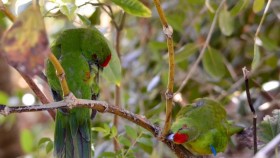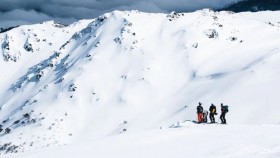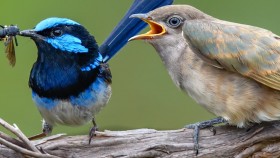Andras Keszei
What is your research interest?
I completed masters in both the diterpene chemistry of spurges and homeotic genes of Medicago truncatula after which I ended up applying for a PhD in chemical ecology -- a field where I could make both interests count. I am still mostly interested in the chemical ecology of plants -- preferably the less studied the better -- but I also have a thing for terrestrial invertebrates. In practice, this means that I get to go bushwalking, play with fancy machines, and cut and paste sequences.
What is your teaching focus?
In my research, I have been a bit of a jack-of-all-trades, which is well suited to teaching the large first year classes ranging in topics from evolution and ecology through to biochemistry and molecular biology. In convening BIOL1003 and BIOL1004 I have had a chance to lecture, run tutorials and labs in all of these topics, and having taught high-school biology for three years before starting my PhD has been tremendously helpful.
What do you enjoy most about teaching?
Compared to being stuck in the swamp for days, or labwork, where maximum concentration is necessary, teaching is a highly social activity. Unlike research where you often wait weeks for your results, in teaching you can get immediate feedback. I never cease to be amazed at the variety of thinking strategies I encounter in how students tackle problems, and by following those paths of reasoning I can still often gain a new perspective on a subject.
What do you see as challenges for your field?
Tertiary education is moving quickly in the direction of e-learning, and along the way a lot of the genuine, human interaction is easily sacrificed. Making use of the technology available is crucial in achieving learning outcomes that are relevant to the professional environment in academia and beyond. In undergraduate teaching we need to be able to do this without losing the engagement between academics and students, and between the students themselves.
- This article originally appeared in the RSB Newsletter, Issue 82, December 2016.








